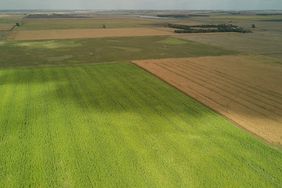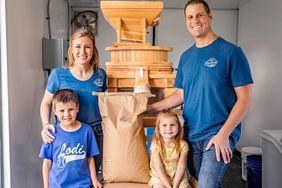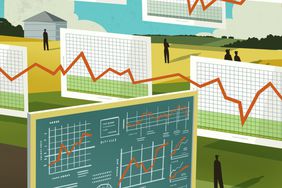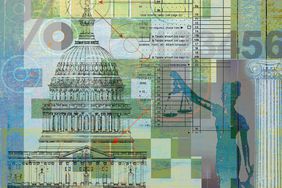:max_bytes(150000):strip_icc()/103071589-2000-0cafcc11f3014074b0d3b3d1323f986a.jpg)
The Tax Cut and Jobs Act, signed into law in late December 2017, could mean a host of changes for your farm and ranch business and for you personally. For the foreseeable future, corporate and individual tax rates are lower. Yet, questions exist on how tax reform will play out on business and personal returns.
1. Individual income tax rates (see Chart 1) are generally lower for the next seven years, which should equate to tax savings at most levels of taxable income. Unfortunately, these rates are scheduled to sunset after 2025 and default to 2017 tax rates.
2. The standard deduction used by many individual taxpayers has nearly doubled. For married filers, the standard deduction increased to $24,000 in 2018 from $12,700 in 2017; for single filers, it increased to $12,000 from $6,350.
:max_bytes(150000):strip_icc()/individual-tax-rates-5d8a24c31acc46918b985ddd90e44b57.jpeg)
Because of this increase, many taxpayers who currently itemize deductions (including medical expenses, state, and local taxes paid, real estate taxes and mortgage interest on personal residences, and charitable donations) will default to using the larger standard deduction in 2018.
While itemized deductions for real estate taxes on a personal residence plus state income taxes paid will be capped at $10,000 in 2018, farmers and ranchers who pay real estate taxes on land used for crops and as pasture will continue to be able to deduct 100% of these expenses in full.
3. Personal exemptions for taxpayers, spouses, and dependents (children) have been suspended. In 2017, this deduction was $4,050 per person. That is gone in 2018. So, an average family of four will lose $16,200 of deductions in 2018. This lost deduction may be somewhat offset by the increased standard deduction.
4. Capital gains rates of 0%, 15%, and 20% have generally been retained along with the tax breakpoints at which the 15% and 20% rates begin to apply. This is good news for farmers who plan to sell land or other appreciating assets and raised breeding livestock.
5. Depreciation rules are more favorable for 2018 and beyond (see Chart 2). When you purchase and replace equipment and build sheds, these deductions are available.
:max_bytes(150000):strip_icc()/section-179-expensing-4e613cb6ce1d4e99a068c084b2b4949b.jpeg)
6. The new tax law preserved like-kind exchanges for real property but eliminated like-kind exchanges of personal property. Thus, in 2018, a 1031 exchange involving farmland can still result in a tax-deferred exchange. Alternatively, equipment and livestock trades will be treated as taxable events with the taxpayer reporting gain or loss on the sale. However, much or all of this potential gain can be reduced or eliminated with the generous depreciation rules on your new purchase.
7. C-corporation farmers may benefit, as corporate tax rates have dropped to a flat 21% tax rate (compared with 2017 rates as high as 39%). So, while double taxation still exists for corporations (meaning income is taxed by the corporation and again when paid to the owner or shareholder), lower corporate tax rates may trump this.
8. Net operating loss (NOL) carrybacks have been repealed with an exception for farmers. Farm NOLs can now only be carried back two years compared with the previously allowed five years. However, the new tax laws allow NOLs to be carried forward indefinitely vs. limiting the carry forward to 20 years.
9. Finally, a new deduction, known as the pass-through deduction, has been added equal to 20% of a taxpayer's qualified business income from a partnership, S-corporation, or sole proprietorship (Schedule F and E farmers). For partnerships and S-corporations, this deduction is taken at the shareholder/partner level and reduces taxable income. This section of the tax code needs better clarification from the IRS.
about the author
Julie Spiegel is a certified public accountant for Varney and Associates of Manhattan, Kansas.








